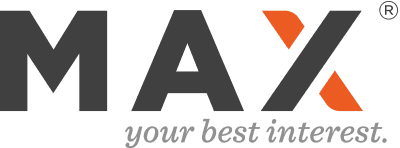Banks are the safest place to keep your money — until they’re not. It’s a remote risk, but bank failures do occasionally happen. It’s important to ensure your cash is adequately protected, before it’s too late.
That’s why deposit insurance exists. In the U.S., the government’s FDIC insurance program guarantees the first $250,000 of a depositor’s cash in each insured bank. But many depositors hold much more than the FDIC limit in cash, leaving a portion of their cash at risk in the unlikely event of a bank failure. Investors keep a portion of their financial assets in cash precisely because they don’t want to take risk, so it makes sense to ensure that as much of your cash as possible is protected by FDIC insurance.
Here are 4 ways to keep your cash safe:
1. Open multiple account types
FDIC insurance tops out at $250,000 per depositor, per account type, and per bank. If you set up an account for yourself, one for your spouse, and one held as a joint account in both of your names, together you now have $1 million in FDIC coverage at that bank: $250,000 for each of your individual accounts, plus another $250,000 for each of you for the joint account.
2. Ask if your bank has multiple bank charters
The largest national banks often have more than one bank charter. This means they can offer their account holders the ability to have accounts at what’s technically more than one bank. Because FDIC coverage applies per bank, this can increase the deposit insurance that account holders can receive. If you hold $750,000 at a bank that has three bank charters, you may be insured under FDIC rules for the entire balance. Ask your bank if this applies to your accounts and read the fine print to ensure you are adequately protected.
3. Open accounts at different banks
To make sure your cash in the bank is insured, you can open accounts at a variety of banks. That way, even if one bank fails, you’ll still have access to your accounts at the other banks. Be sure to keep your accounts below the $250,000 FDIC coverage limit at each bank.
As you spread your accounts among different banks, consider online banks as well as traditional brick-and-mortar banks. Savings accounts at online banks often pay considerably more in interest, because they don’t have to support the same level of expenses for branches or tellers. Just be sure to monitor the rates your banks are paying, so you can make certain you’re getting the most interest you can. Banks change their rates frequently.
4. Use MaxMyInterest.com to manage accounts held at multiple banks to keep you within the FDIC limits while earning more in interest
If you’d like a solution to help you manage your existing brick-and-mortar checking account along with online savings accounts, while optimizing the amount of interest you earn, try our service, called Max, at MaxMyInterest.com. Max uses the links between your brick-and-mortar checking account and your online savings accounts to optimize the amount you earn in interest on your cash in the bank, while respecting FDIC limits. That means that your money automatically moves between your own accounts to stay within the FDIC limits at each bank, while helping you earn as much interest as possible, even as rates change.
As an alternative to bank accounts, many investors choose to keep cash in money market funds. This is especially prevalent within brokerage accounts. However, shares of these funds aren’t insured, which means they could potentially lose value. During the global financial crisis, one such fund, the Reserve Primary Fund, dipped below $1 per share in value, sparking an exodus from this class of investments. Since then, Americans’ investments in money market funds have fallen from $4 trillion to $2.7 trillion today.
One downside of money market funds: many of these funds currently yield as little as 0.01% annually. By contrast, bank accounts typically pay 10 times that much in interest and online savings accounts managed through the MaxMyInterest.com system are yielding approximately 80 times more, even after taking fees into account. Max members are currently earning a weighted average of 0.87%, or 0.79% net of fees, all via FDIC-insured savings accounts at leading online banks including American Express, Barclays, GE Capital, Ally Bank and Capital One 360.
Gary Zimmerman is the Founder of MaxMyInterest.com.
- 2023 Year in Review and Outlook for 2024 - December 18, 2023
- Five Reasons to Rethink Money Market Funds - August 27, 2023
- The Mistake Nearly Everyone Is Making With Their Cash - April 23, 2023

